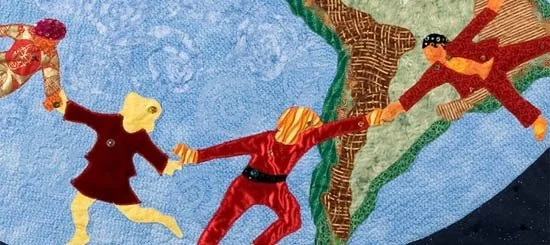Activism Isn’t For Everyone
I don’t need to tell you that in recent years there’s been an unprecedented surge in the number of evangelical Christians and churches seeking to integrate faith and justice. I also don’t need to tell you that those with competing visions of what that integration ought to look like can become quite contentious with each other.
The apostle Paul, in his first letter to the Corinthian church, taught that we Christians are one body with many parts. And Jesus said that unbelievers will be able to recognize that we are Christians by our love for each other. I’m concerned about our bickering.
In my reading of the Bible it seems clear that faith and justice are inseparably linked. But it also seems clear to me that there’s more to the Christian life than doing justice. It’s an essential part of the Christian life, and I’d say it’s an essential part of the work of the church, but it’s hardly the whole thing. Christian justice activists need to be reminded of that.
But I’m convinced that churches have a responsibility to justice activists, as well, a responsibility far too often neglected. Gary Haugen, president of International Justice Mission, writes in his book Just Courage:
In this era I believe many Christians are yearning to walk on a pathway to courage. They yearn for liberation from small and trivial things, and to experience the passion and power of God on the more jagged edges of faith, where true glory lies. And I believe God is providing a very specific answer to that yearning and a very concrete path for getting there: God is calling his people to a pathway out of fear and triviality through the struggle for justice in his world.
And perhaps more surprising, it is call to all his people. It’s not a call to the handful of social justice zealots or slightly odd issue advocates in our faith community. Many churches miss out on God’s transforming call by putting the handful of justice agitators in their congregation on some ministry subcommittee where they can do ‘their thing’ without, hopefully, doing any harm. This effectively inoculates the rest of the congregation and directs everyone else right back onto their Christian cul-de-sac, where round and round they go.
Spiritually healthy and dynamic churches, on the other hand, have learned to equip the whole community of faith to do the things that matter to God.
There’s much more to a “spiritually healthy and dynamic church” than justice, and it’s clearly not the only thing that matters to God. But Haugen is right that it’s an essential component, and that spiritually healthy and dynamic churches will indeed equip those called by God to faithful lives of justice activism.
Each of us is called to immerse ourselves in Scripture, though not everyone is called to teach. We’re all called to join other believers in corporate worship, but not all are called to serve as worship leaders. All of us are called to give the reason for the hope within us, but not all are called to be evangelists. In the same way, God calls all of us to do justice, to love kindness and to walk humbly with him, but that does not mean all of us are called to lives of justice activism.
Justice activists would do well to acknowledge the blessing it is to be part of a community of faith along with those who teach Scripture and lead them in worship and share the good news of Jesus. At the same time, teachers, worship leaders and evangelists would do well to embrace those uniquely in a position to reweave shalom in our world.
So how does your church relate to those members who are passionate about justice, who are called by God to be instruments of shalom in a world in desperate need of redemption? Are they given token nods of approval, but relegated to the sidelines where they hopefully won’t do too much damage or make too much noise? Or are they seen as essential members of the body of Christ to be nurtured and discipled just like everyone else?
Do our senior pastors and worship leaders and children’s ministry staff and small group leaders see how essential the justice people are to the well-being of the church? And vice versa? Do the justice people see that if everyone was just like them the church wouldn’t be all that God intended it to be? What might the consequences be if we disregard all of this and let the bickering run its course?
